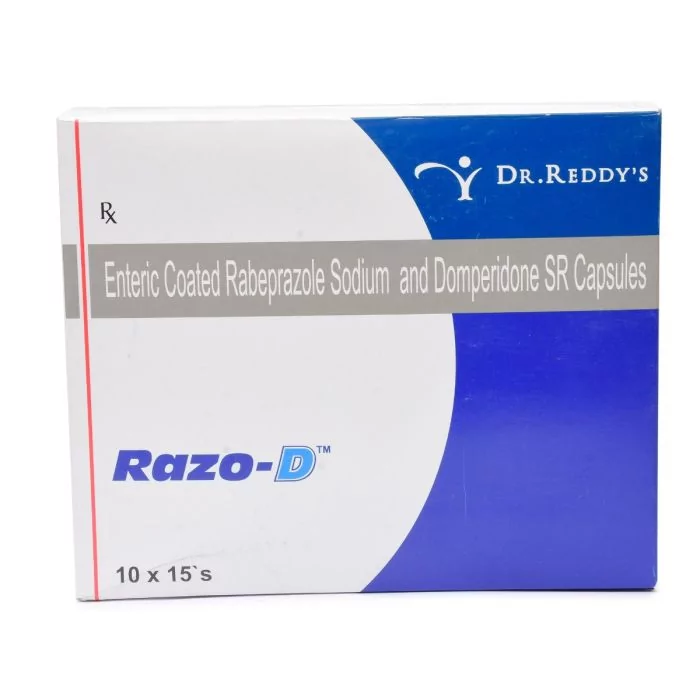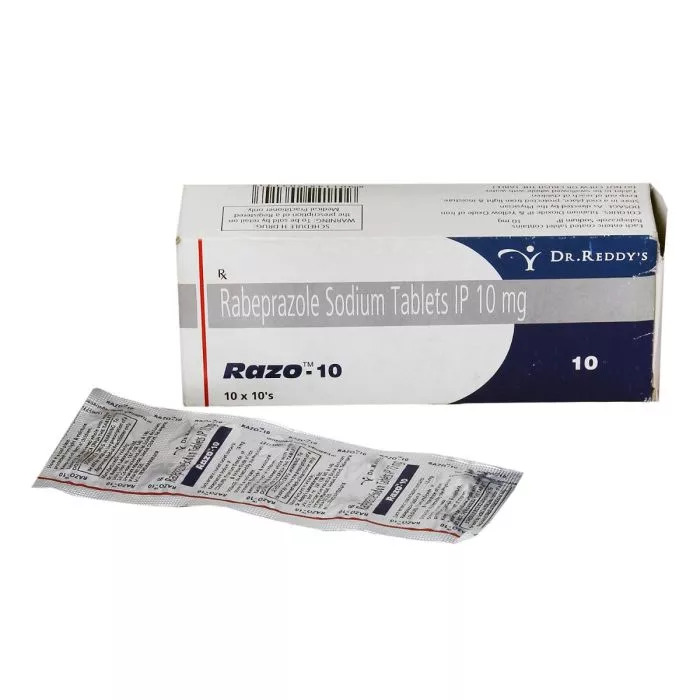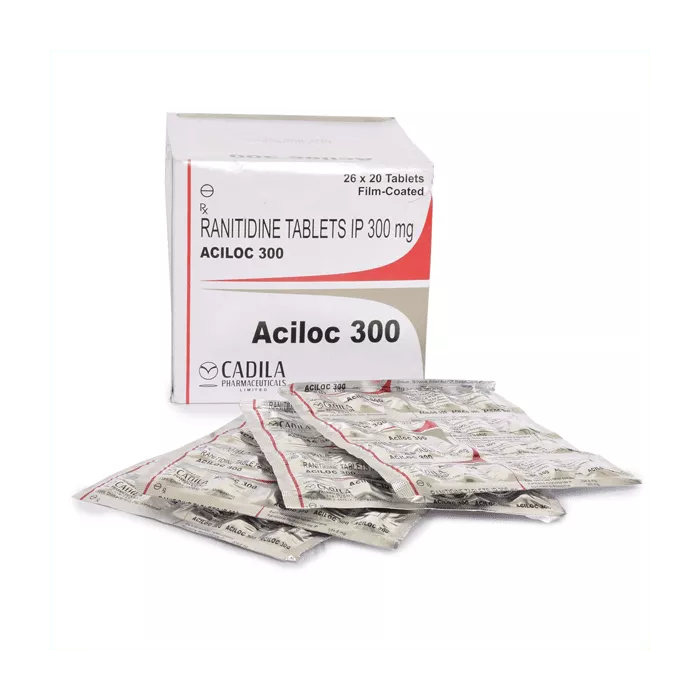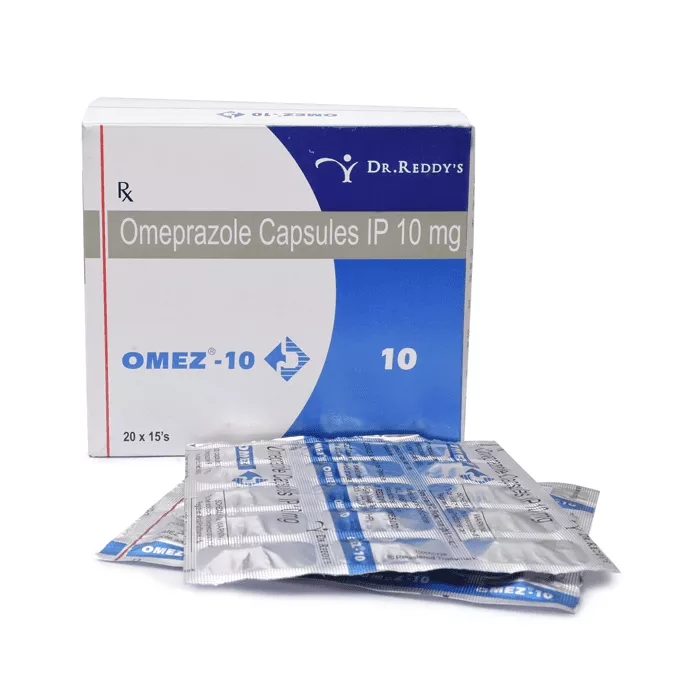If you frequently experience a burning feeling in your chest after meals, you are likely suffering from Gastroesophageal Reflux, commonly known as GERD. This happens when the acid in your stomach moves back into your esophagus (food pipe), causing discomfort, heartburn, or even a sour taste in your mouth.
Acid reflux can occur after a large, rich meal or when you lie down after dinner. While occasional acid reflux is common, GERD is more persistent and can affect your daily life if not managed properly. You may notice symptoms such as heartburn, a sore throat, and backwash.
This article thoroughly explains GERD, including its causes, symptoms and available treatment options. It will help you take the first step toward relief so that you can feel comfortable and enjoy your meals without worry.
What is Gastroesophageal Reflux Disease?
Gastroesophageal Reflux Disease, or GERD, happens when stomach acid flows back into the esophagus. This backflow, called acid reflux, can irritate the esophagus (food pipe) lining and cause heartburn, discomfort, or a sour taste in the mouth.
Acid reflux can occur occasionally, but when it happens repeatedly over time, it can develop into GERD. It means the mechanisms that usually block acid from rising into your esophagus are not working correctly.
GERD is becoming increasingly common worldwide. In 2019, there were about 784 million cases, up 77.5% from 441.6 million in 1990, showing that this condition affects a growing number of people globally.
Save up to 90% on your medicine bills

Razo D

Razo 10 mg

Aciloc 300 mg

Omez 10 mg
What are the symptoms of GERD?
Apart from heartburn, GERD can cause many symptoms that affect your digestive system, throat, and airways. These symptoms vary from mild discomfort to issues that can feel like heart or lung problems.
Here are some symptoms of Gastroesophageal Reflux Disease.
- Backwash (Regurgitation): Acid, food, or liquids flow back from your stomach into your throat, often leaving a sour or bitter taste.
- Burning sensation: Burning feeling in your chest (heartburn) or closer to your stomach (acid indigestion).
- Noncardiac chest pain: Discomfort in the esophagus that can mimic heart-related pain.
- Nausea: Stomach discomfort, a drop in appetite, or a lingering feeling of undigested food.
- Sore throat: Irritation is caused by acid rising into your throat, sometimes making it hard to swallow or making it feel like there’s a lump.
- Nighttime reflux issues: Persistent cough, Laryngitis (inflamed vocal cords), or new and worsening Asthma that appears more at night.
What are the causes of GERD?
A variety of factors can contribute to acid reflux or GERD, from everyday habits to medical conditions. Some GERD causes are,
- Weak Lower Esophageal Sphincter (LES): The LES is a muscle at the bottom of your esophagus that works like a valve, keeping stomach acid where it belongs. If it’s weak or relaxes at the wrong time, acid can escape and cause reflux.
- Hiatal Hernia: Sometimes, part of your stomach pushes up into your chest through your diaphragm. This condition, called a Hiatal Hernia, can weaken the LES and make reflux more likely.
- Certain foods and drinks: Spicy or fatty foods, chocolate, caffeine, alcohol, and fizzy drinks can all trigger reflux. They either relax the LES or increase stomach acid, which makes it easy for acid to flow back.
- Obesity: Carrying extra weight, especially around your abdomen, puts pressure on your stomach and pushes acid up into your esophagus.
- Smoking: It weakens the LES and reduces saliva, which usually helps neutralize stomach acid, making reflux worse.
- Medications: Certain medications, including Aspirin, Ibuprofen, some blood pressure medications, and muscle relaxants, can irritate the esophagus or increase the likelihood of reflux.
What are the possible complications of GERD?
If GERD is left untreated for an extended period of time, you may face the following complications:
- Esophagitis: It is the inflammation of the esophagus lining that can cause pain, ulcers, scarring, or precancerous tissue changes.
- Barrett’s esophagus: Long-term acid exposure can change the cells lining your esophagus to resemble intestinal lining, increasing the risk of esophageal cancer.
- Esophageal stricture: Scar tissue may narrow your esophagus, making it difficult to swallow and affecting eating and drinking.
- Laryngopharyngeal Reflux (LPR): Acid can reach your throat, leading to swelling, hoarseness, changes to your vocal cords, or even acid entering your airways while you sleep. It is also known as silent reflux.
- Asthma and breathing issues: Acid in your airways can worsen Asthma or trigger Asthma-like symptoms.
How is GERD diagnosed?
If you have symptoms of GERD, a gastroenterologist will evaluate your esophagus to determine the cause. Diagnosing this condition typically involves reviewing medical history, symptoms, and taking specialized tests.
- Esophagram: This type of X-ray takes moving images of your esophagus while you swallow. You’ll drink a chalky liquid called barium, which helps the doctor see how food and liquid move through your esophagus.
- Upper endoscopy: This test includes passing a thin, flexible tube with a camera down the throat to look inside your esophagus. You’ll be lightly sedated so you’re comfortable during the procedure. It allows your doctor to check for inflammation, irritation, or other damage.
- Esophageal pH test: This test measures the acidity of the esophagus. During an endoscopy, a small wireless receiver is placed in the esophagus to observe acid levels over time.
- Esophageal manometry: This measures the muscle activity in your esophagus using pressure sensors on a thin tube passed through your nose. It helps confirm if your LES or other esophageal muscles are working correctly.
What are the treatment options for GERD?
Based on the severity of your symptoms, the treatment can range from simple lifestyle adjustments to prescription medicines and, in some cases, minor surgical procedures.
Let’s look into Gastroesophageal Reflux Disease treatment options in detail.
Lifestyle habits
Making small changes in your daily routine helps reduce acid reflux and ease GERD symptoms. Here are some habits that can help:
- Maintain a healthy weight: By losing weight, you reduce the pressure on your stomach, making it less likely for acid reflux to occur and helping your digestive system work more smoothly.
- Quit smoking: Quitting nicotine strengthens the LES, improves digestion, and also reduces other risks like ulcers and heart disease.
- Elevate your bed: Raise the head of the bed by 6–9 inches, or use a wedge (a firm, triangular device) to keep acid from moving upward while you sleep.
- Sleep on your left side: This position can reduce the chances of reflux at night.
- Avoid lying down after meals: You should wait at least three hours before lying down or going to bed. It decreases the risk of acid moving up into the esophagus and prevents discomfort.
- Eat slowly and chew well: Take smaller bites and put your fork down between each one. It allows your stomach to digest food efficiently, reducing acid buildup and improving overall digestion.
- Limit trigger foods and drinks: Alcohol, caffeine, chocolate, fatty foods, and peppermint are common culprits. This will help decrease acid production and prevent worsening reflux.
- Avoid tight clothing: Tight waistbands add pressure to your stomach and worsen reflux. Wearing looser, comfortable clothing reduces this pressure, lowering the risk of reflux and making you feel more comfortable after meals.
Over-the-counter medicines
If you have occasional acid reflux, over-the-counter (OTC) medicines can provide quick relief. They are easy to get and can help reduce the burning or discomfort caused by stomach acid. OTC medicines include:
- Antacids: These neutralize the acid in your stomach. They act fast and can help relieve heartburn or indigestion after meals. However, they aren’t meant for long-term use, as frequent use can cause side effects.
- Alginates: Made from natural seaweed extracts, alginates create a protective layer that floats on top of your stomach contents. This barrier prevents acid from rising into your esophagus. You will find some OTC medicines that combine alginates with antacids for extra protection.
Prescription-based medications
When GERD symptoms are frequent or severe, your doctor may prescribe stronger medications to reduce stomach acid and protect your esophagus. Here are some medicines that your doctor may prescribe.
- H2 blockers: These reduce acid production by blocking Histamine, a chemical that signals your stomach to make acid. They’re useful for short-term relief but may become less effective over time.
- Proton Pump Inhibitors (PPIs): PPIs are more powerful acid blockers that help repair the esophagus. They’re often the first choice for moderate to severe GERD and work very effectively to reduce reflux.
- Baclofen: This muscle relaxant helps limit relaxations of the Lower Esophageal Sphincter (LES), reducing the number of reflux episodes. It’s usually used in combination with other treatments rather than alone.
Surgical options
When lifestyle changes and medications aren’t enough, surgery can be a highly effective way to control GERD and prevent complications. These procedures focus on strengthening LES to stop acid from flowing back into the esophagus.
- Nissen Fundoplication: This is the most commonly performed surgery for GERD. This procedure wraps the top part of your stomach around the lower esophagus to make the LES stronger.
- LINX Device: This newer procedure places a small ring of magnets around the LES. The magnets help keep the connection between the stomach and esophagus closed while allowing food to pass through normally.
When to see a doctor
While occasional heartburn or mild reflux is common and often harmless, you should seek medical advice if symptoms become persistent, severe, or unusual. Ignoring these warning signs can delay diagnosis of underlying conditions and increase the risk of complications. Here are situations when you should see a doctor:
- Bleeding
- Choking, coughing, or shortness of breath
- Frequent vomiting
- Loss of appetite
- Trouble swallowing or pain while swallowing
- Unexplained weight loss
Conclusion
Gastroesophageal Reflux Disease occurs when stomach acid regularly flows back into your food pipe, causing irritation and discomfort. While occasional acid reflux is normal, persistent heartburn, regurgitation, chest pain, or throat irritation may mean you have GERD.
Factors like a weak lower esophageal sphincter, hiatal hernia, certain foods or drinks, Obesity, smoking, or some medications can trigger it.
You can manage GERD through lifestyle changes, over-the-counter remedies, prescription medications, or, in severe cases, surgery. By getting diagnosed early and treating symptoms promptly, you can help prevent complications like Esophagitis, Barrett’s Esophagus, or breathing issues.
By making the proper adjustments, you can reduce discomfort and protect your digestive and overall health.
Frequently Asked Questions
Can I live normally with Gastroesophageal Reflux Disease?
Yes, you can live a normal and fulfilling life with GERD if you manage your symptoms effectively. By making lifestyle changes, like adjusting your diet, maintaining a healthy weight, and using medications when needed, you can reduce discomfort, sleep well, and prevent complications.
At what age does GERD start?
GERD can develop at any age, but it’s most common in adults and young adults. You may notice symptoms in your 20s or 30s, and they remain common through middle age. However, the chances of experiencing it slightly decrease once you’re over 70.
What should I do during an acid reflux attack?
If you’re experiencing an acid reflux attack, try standing up to let gravity help, taking small sips of water to neutralize the acid, and loosening your waistband for added comfort. You can take an antacid or a similar product, such as Pepto Bismol, to relieve symptoms.
Is ginger good for acid reflux?
Yes, ginger can help alleviate some symptoms of mild acid reflux by reducing irritation, bloating, and nausea. Small amounts in tea, meals, or low-dose supplements are usually safe. However, its effects vary, and in higher doses, ginger might worsen heartburn for some.
Cheap Medicine Shop only refers to credible, authoritative sources for our content. If you’re curious about how we ensure the integrity of our content, we encourage you to read our Content Information Policy.














